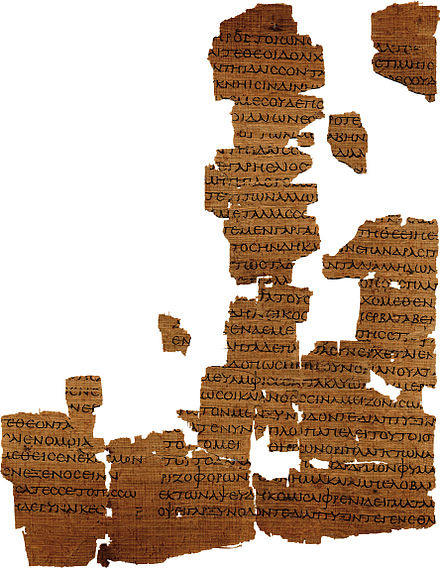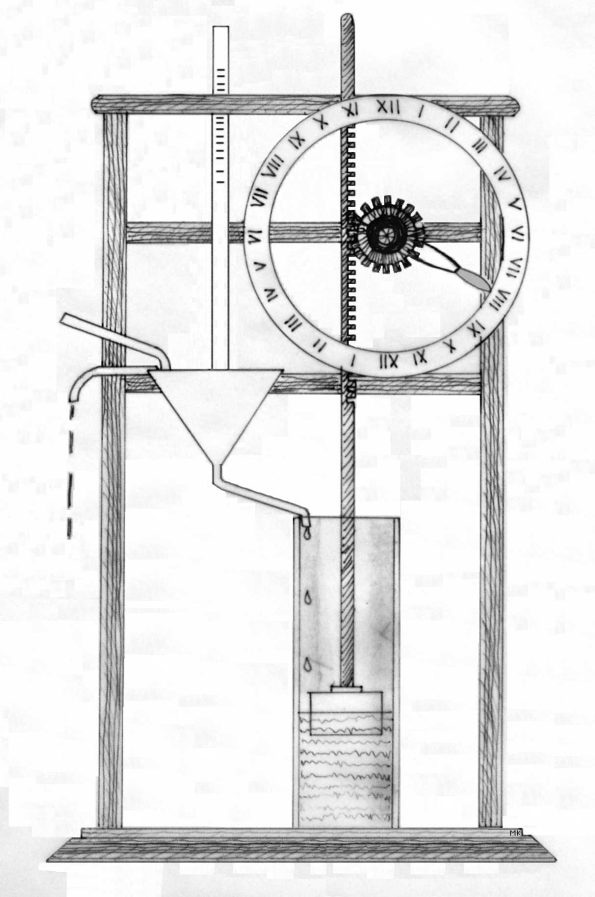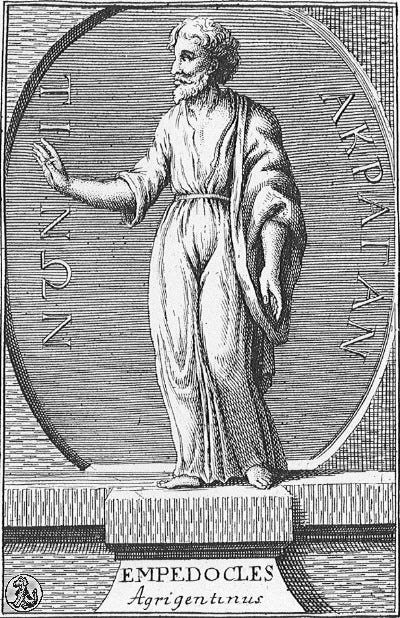Empedocles
The Philosopher God?
Dear Classical Wisdom Reader,
Plato wrote about philosopher kings.
But what about philosopher gods?
They say that the ancient Greek philosopher Empedocles died by jumping into the volcanic Mount Etna. Legend has it, he believed he was a god, and was attempting to prove his immortality. Or, rather, that by jumping into the volcano, he would become a god.
It all makes me think of the line from Fight Club: “The first step to eternal life is you have to die.”
In any case, Empedocles on Mount Etna remains a powerful, popular image that’s endured over the centuries, with paintings, plays, and poems being inspired by it. Like with many ancient philosophers, the colorful tales surrounding their lives may not be strictly true, but they are revealing in another way: they can illustrate aspects of their ideas, and they can also tell us about how they were perceived.
Empedocles was considered a mystical figure. He was also an Epic poet and a proto-scientist, developing early ideas about light. Yet the dramatic and mysterious tales of his death distract from what really made him famous in the first place: his philosophy.
Empedocles was one of the pre-Socratic philosophers (or as we prefer to call them at Classical Wisdom, ‘the first philosophers’) and his ideas encompass the four elements, a conscious universe, and the power of love binding it all together.
Read on below to discover both the man and his philosophy…
All the best,
Sean Kelly
Managing Editor
Classical Wisdom
Empedocles: The Philosopher God
by Jocelyn Hitchcock
Empedocles, born c. 490 BCE in Akragas, Sicily, is perhaps one of the more eccentric pre-Socratic philosophers. He himself claimed other-worldly powers, is credited by Aristotle as the inventor of rhetoric, and is thought to have originated the cosmogonic theory of the four elements: fire, air, water, and earth.
While relatively little is known about Empedocles’ personal life, we do know he was born to a wealthy family who was involved in the overthrow of the Akragas tyrant in 470 BC.
Diogenes Laërtius, in his Lives of the Eminent Philosophers, presented Empedocles as having possibly had different teachers. He offered the following options: that Empedocles was a student of Pythagoras, that he was a student of the Pythagorean school under the instruction of Huppasus and Brontinus, or that he could have originally been under the influence of Xenophanes and later “fell in with the Pythagoreans.” This confusion stems from the fact that Empedocles was an Epic poet, and the Pythagorean school had a law to admit no Epic poet. Indeed, Empedocles is generally considered the last Greek philosopher to have recorded his ideas in verse.
Empedocles himself had one pupil mentioned, Gorgias, who became a famed Sophist. He also traveled widely. His journeys to the Peloponnese, Attica, and Thurii were mentioned by authors such as Timaeus and Dicaearchus.
Empedocles’ philosophy and teachings are taken from the remaining fragments of his Epics On Nature and Purifications. The core of Empedocles’ philosophy relied on the notion that all things are transformed and manipulated between the four worldly elements of fire, air, water, and earth, and that nothing is destroyed and nothing is created new. He believed that everything in the universe was made of these four root elements and that the universe itself was conscious.
Combined with this attempt to simplify and organize the world, Empedocles’ doctrine promoted the idea that love was the unseen force holding things together, while strife was the force by which things were pulled apart. Love and Strife, then, were the ways in which the four elements were able to interact and mix together.
Empedocles’ philosophy about the universe was in response to the contemporary Eleatic School, which was founded by Parmenides in southern Italy. The Eleatic School promoted the idea that “all is one” in the universe and everything existed in a single entity. Empedocles pushed back a little by saying all is composed of the same four elements. While this concept is similar at the root of the argument, it did differ enough to constitute a separate philosophical school.
Even though the line between Empedocles’ philosophy and Empedocles’ science is blurred to say the least, he did undertake what we would even recognize today as “scientific testing.”
Empedocles proved that air was not empty space by using a clepsydra. This is a water clock, by which time is measured by the regulated flow of liquid into or out of a vessel. He did this by filling the clepsydra with water while covering the hole at the top. This allowed for his element of air to be an active ‘ingredient’ in comparison with earth, water, and fire – all tangible and manipulative elements.
Another theory of Empedocles comes down to us through Aristotle in De Sensu. Empedocles thought that the light from the sun passed through intermediary space before being processed by our eyes, moving through space by whatever force. Indeed, Empedocles is credited with the first comprehensive theory of light and vision.
But perhaps one of the more advanced undertakings of Empedocles gives us what is thought to be the earliest extant attempt to discern the origin of species. He introduces zoogony, or generations of animals, in his attempts to explain the origin and development of biological life.
Empedocles’ death is the stuff of legends, as he was mythologized by ancient writers. Famously, it is said that he died by throwing himself into Mount Etna, allowing him to turn into an immortal god.
Further descriptions of Empedocles and his ideas are recorded by Aristotle, Diogenes Laërtius, Pliny, and Horace’s Ars Poetica. Aristotle called him the father of rhetoric, and Lucretius speaks of him with enthusiasm, and evidently viewed him as his model. Much later, his death is at the center of a 1826 play by Friedrich Holderlin, ‘Tod des Empedokles,’ and Matthew Arnold’s 1852 poem titled ‘Empedocles on Etna.’
While this eccentric philosopher may not be a household name today, he was clearly very influential in the ancient world and thus deserves our attention.






It is my conviction that Empedocles is the Unknown Fourth in Plato's dialogue Timaeus. There are chronological difficulties with this, but as always, chronological difficulties are often due to misunderstandings, ancient and modern. One very famous scholar had the same idea: Alfred E. Taylor. If the idea is correct, this places Empedocles in a very prominent position in Plato's dialogues. Just read the beginning of Plato's Timaeus with this idea in mind.
More Empedocles, along with Parmenides, Pythagoras, and Socrates and their link to music:
https://tedgioia.substack.com/p/can-songs-really-replace-philosophy